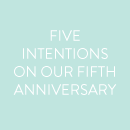9 February 2015
Well, here it is: the most frequently-requested topic since I started Marvelous Money. I have resisted writing on it since I have not, in fact, had a baby, and therefore feel under-qualified to write about what someone should do to prepare for having one, but the requests kept coming. So, after thinking about it for many months, I figured I would do this:
1. Put my best attempt forward, based on things John and I have thought about or I have discussed with the wise people around me.
2. Ask for your advice in the comments!! People who have had babies, I want to hear from you!
3. At some point in the future, after I have actually had a baby, come back and write a follow-up post. Hopefully I will not be crying tears of laughter at myself.
Alright, let’s do this! My best tips for preparing financially for a baby:
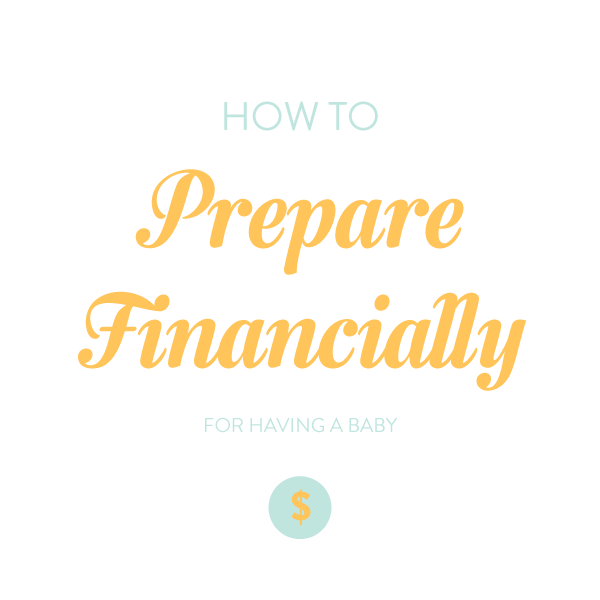
1. Start saving. Just start saving money. It doesn’t matter if you don’t know what it’s for, or how much you need to save, or whether or not you’re pregnant. If you’re thinking about having a baby, start saving money. It’s always a good idea to save, but you will surely need it for something if you’re adding a new member to the family. Money is not everything, but generally, the more money you have, the more choices you have.
2. Start, build, or top-off your emergency fund. If you currently have no emergency fund and are pregnant, it’s unlikely that you’ll be able to set-aside three to six months of savings in nine months (it took us two years). That’s okay! But just because you can’t do it all doesn’t mean you should do nothing. At the very least, set aside $1,000 to deal with unexpected expenses.
3. Find out what your out-of-pocket maximum is and save that amount. I hear that it’s a little bit expensive to be pregnant and to actually birth a baby. Therefore, it’s entirely likely that you will not only hit your insurance deductible but reach your out-of-pocket maximum. If you have an HSA, your maximum could be thousands of dollars (ours is $4,500). Read up on your health insurance plan and be smart about what expenses you could be looking at.
4. Research your maternity leave. If you currently have a job and don’t know if you have maternity benefits or what they look like, now is the time to find out! How long is it? Do you get paid? Full salary, or partial? What does FMLA leave mean for you? If you won’t be getting paid, discuss with your spouse how you will make up the difference in your household budget – savings? Cutting back on expenses?
5. Try to make some of your income more passive. If you are an entrepreneur or a creative person, brainstorm ways to bring in more passive income during your maternity leave, if possible. This could look like an invitation download if you have an Etsy shop, or an e-book if you blog, or even working ahead (if you sell a product) to have items ready to ship. Not relevant for everyone, but I wanted to mention it!
6. Talk with your spouse about what you want your life to look like. And use that discussion to estimate how your costs might change. Are one of you planning to stay home? For one year? For ten years? How will you make up the difference in your budget? How will your budget absorb the additional expense of a child? Are you on the same page about where you’ll cut back, if necessary?
7. Research childcare options. If you’re planning to have any sort of childcare, what will it cost? Full time day care? Full time nanny? Part time? Grandparents? Request information or ask around and figure out how much each option costs in your area. Brainstorm how you will fit this money into your budget.
8. Make sure you have the important things in place. While not completely financial in nature, making sure you have a living will in place, life insurance coverage, and other important grown-up items becomes even more important when you bring a child into the picture.

Adorable niece! (And adorable sisters, too.)
9. Think simple! Yes, there are mandatory expenses that come along with having a baby – but I think most of the time a lot more money is spent on a new baby than is actually necessary. John gets annoyed at me when I say things like this, because he thinks I’m being naive. Maybe I am, but in talking to friends and observing the world, I think there is a lot of truth in that statement.
My eyes were opened when talking to my friend M. Her daughter was born six weeks early. She had just had her shower the day before; she and her husband were planning to fill in the gaps in the next few weeks to make sure they were ready for baby’s arrival. Instead, they spent the next few weeks in the hospital and never went on that big purchasing trip – they just bought what they needed as they needed it, and most things they never ended up purchasing at all.
From what I hear, babies don’t need a whole lot. They certainly don’t need a fancy nursery. They don’t need a ton of outfits (probably a multi-pack of simple onesies would be fine to start). They don’t need a special blanket to lie down on or cover them in their stroller (you probably have an extra blanket in your house you could use). I’m not saying these things aren’t lovely or useful or that I might partake in them myself – but if you’re worried about the cost of a new baby, I want to encourage you that there are many ways to reduce expenses. Borrow or purchase items from older friends or siblings. Shop consignment sales and stores for clothing. Search Craiglist for used items at a fraction of the price.* I know I will be doing all of the above!
To conclude, there are a lot of big questions, and words like “saving” and “budget” and “thousands,” in this post. Yikes! Instead of being discouraging or overwhelming, I hope it leaves you feeling empowered. I worry sometimes that a future child will derail the financial momentum John and I have worked so hard to build, but I think being brave and thinking ahead is the best way to ensure we have as many options as possible when the time comes. I hope you feel the same way!
Friends, I would LOVE to hear from you!! If you have a child, what, if anything, did you do financially to prepare your family? Does this advice ring true or am I totally off? If you are thinking about having a child, what financial questions do you have?
*Safety standards are updated often, and I know there are certain items (cribs, car seats) that experts recommend buying new. Make sure to do your research!
8 December 2014
I came across a book review over the weekend that reinforced a lot of things I (and you) probably already know, but that bear repeating. An excerpt:
A team of researchers at the New York State Psychiatric Institute surveyed 43,000 Americans and found that, by some wide margin, the rich were more likely to shoplift than the poor. Another study… revealed that people with incomes below twenty-five grand give away, on average, 4.2 percent of their income, while those earning more than 150 grand a year give away only 2.7 percent. ‘As you move up the class ladder,’ says Keltner, “you are more likely to violate the rules of the road, to lie, to cheat, to take candy from kids, to shoplift, and to be tightfisted in giving to others.’ There is an obvious chicken-and-egg question to ask here. But it is beginning to seem that the problem isn’t that the kind of people who wind up on the pleasant side of inequality suffer from some moral disability… The problem is caused by the inequality itself: it triggers a chemical reaction in the privileged few. It tilts their brains. It causes them to be less likely to care about anyone but themselves or to experience the moral sentiments needed to be a decent citizen.
Or even a happy one… In a forthcoming paper, Norton and his colleagues track the effects of getting money on the happiness of people who already have a lot of it: a rich person getting even richer experiences zero gain in happiness. That’s not all that surprising; it’s what Norton asked next that led to an interesting insight. He asked these rich people how happy they were at any given moment. Then he asked them how much money they would need to be even happier. ‘All of them said they needed two to three times more than they had to feel happier,’ says Norton. The evidence overwhelmingly suggests that money, above a certain modest sum, does not have the power to buy happiness, and yet even very rich people continue to believe that it does: the happiness will come from the money they don’t yet have. To the general rule that money, above a certain low level, cannot buy happiness there is one exception. ‘While spending money upon oneself does nothing for one’s happiness,’ says Norton, ‘spending it on others increases happiness.’

It’s become something of a tradition for me to post on the theme of generosity each December. Generosity is very close to my heart; it’s what I want my heart to be. I believe in acts of kindness and in giving away money at Christmas. But I hope I haven’t given the impression that generosity is something that’s reserved for one month of the year.
Even as we work hard at saving for retirement or getting out of debt or budgeting, I think we should be working equally as hard on giving away money. To me, a person with truly healthy finances would have her spending, her saving, AND her giving all on track. As we get better at spending and saving, the hope is that we will become wealthier. The hope is not, as the review describes above, that we would become empty, selfish, and small. And that’s where giving comes in – it makes us bigger, better, more caring, and less selfish people.
Even so, it’s not always easy. In 2015, we have budgeted to tithe, the first time we’ve done so fully. While this is exciting, to be honest, it has also been – ahem – refining. I find myself saying, God, you know we are responsible with money. You know we would use that money for good things – to save, to pay off our mortgage. We wouldn’t waste it! Can’t we just keep a little more? Frustrating though it may be, ultimately I know that the discipline is important. It reminds me that our money is not our own, that I must decrease, that the world does not revolve around me (all things I tend to forget). With all of the blessings in my life, it behooves me to feel a pinch somewhere – in this case, when I part with that offering every week.
So how do you give away money? It seems like it would be pretty simple (Here’s $100 for you! And $100 for you!), but just as with other aspects of your finances, there are things to learn and consider. This year, we decided to open a donor-advised fund to facilitate our giving. This graphic helps explain what one is, using Fidelity’s fund as an example:
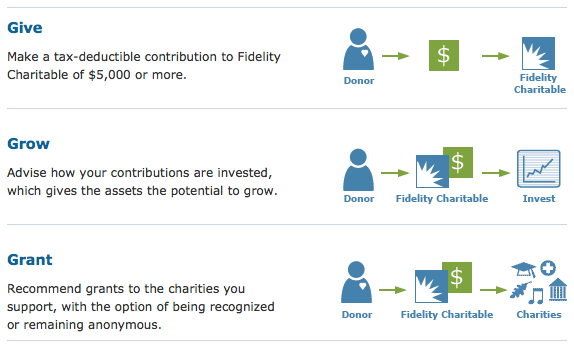
Basically, you make a tax-deductible donation to the organization of your choice. Your money is no longer your own (it’s been donated), but it is held for you with your name on it. You can then “direct” or “recommend” (organizations use different terminology, but they do as you request :) ) “grants” to charities, churches, and non-profits. For example, we donate the full amount we’ve pledged to our church to our donor-advised fund, then direct the fund to give monthly grants to our church.
There are several benefits to using a donor-advised fund:
1. It simplifies your giving for taxes and recordkeeping. As you can see above, instead of donating directly to the charities you support, you give all of your money to your donor-advised fund. At that point, in the eyes of the IRS, your tax-deductible donation has been made. So, when your tax return is due, you only have one form and one lump sum – say, $10,000 – to submit, even though you gave $1,000 to ten different charities over the course of the year.
2. It helps keep giving a priority. If you’re not very strict with your budgeting, it can be easy to spend money that you meant to give away. With your donor-advised fund, you can move the money out of your normal accounts and keep it in a safe place, even if you don’t know yet where you’d like to donate the money.
3. You can invest the money. In many funds, while your money is waiting, it can be invested (and professionally managed – usually in a mix of stocks and bonds), and potentially grow – meaning more money to give away to charity!
Think a donor-advised fund might be for you? I know of a few organizations to look into, including Fidelity Charitable, Vanguard Charitable, and the National Christian Foundation.
I’d love to hear: do any of you use a donor-advised fund? Is giving a part of your budget? Is it something you think about often, or just in months like December? I’m all ears for questions, too!
20 October 2014
I read an interesting piece the other day that I wanted to share with y’all. It was from one of my favorite writers on personal finance, Megan McArdle, and in it, she laid out seven reasons why most of us spend more than we should. Go take a peek!
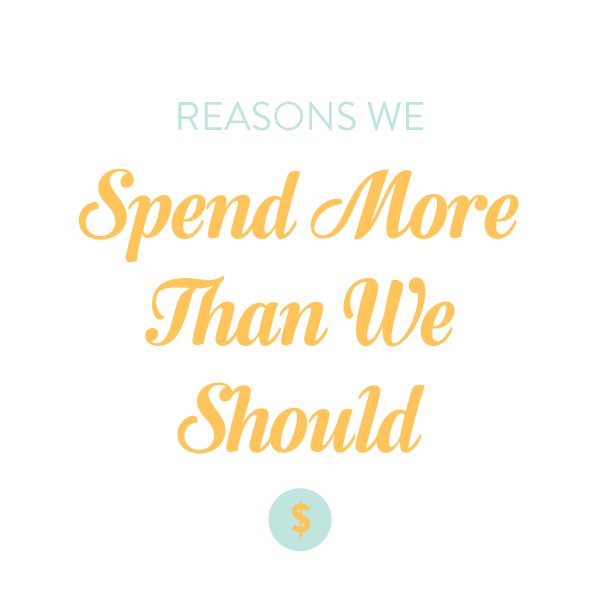
Another money guy, Dave Ramsey, likes to say that the root of our money problems is almost always ourselves, and I think it’s true! It’s not just the things that we do, but the ways that we think and the logical fallacies that we believe (as Megan points out) that undo us. If what we’re doing is not working (i.e. we’re not saving enough/we’re spending too much), then understanding why we’re doing what we’re doing is a great step toward changing our habits.
I’d love to know: which reason Megan laid out resonated most for you? I identified most with numbers 1 and 7. And I loved her final two (succinct) pieces of advice!
20 March 2014
A few months back we discussed saving for retirement through a 401k (and a few months before that, we talked about why saving why retirement as early as possible is a good idea!). I promised to address the other way most people save for retirement – IRAs – and now I’m here to deliver! Question and answer seemed to work last time, so we’ll try it again :)
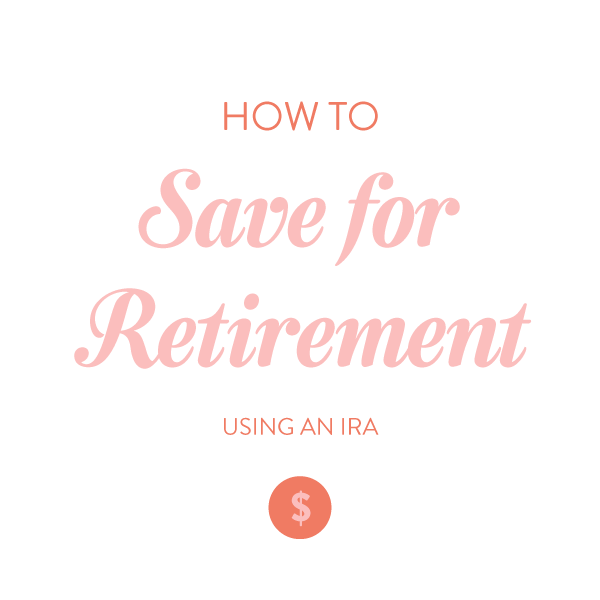
What is an IRA?
An IRA, or Individual Retirement Account, allows you to save money for retirement with tax advantages. The account is held at a financial institution, not through your employer. There are two main types of IRAs – Traditional and Roth – and they have different advantages.
What is a Traditional IRA?
In a Traditional IRA, you’re able to deduct your yearly contribution from your taxable income (reducing the amount of money you have to pay taxes on – yahoo!). Ideally, the money will build up over time, and then in retirement, you’ll pay income taxes on it when you take it out. Many people find themselves in a lower tax bracket when they retire, since they’re not making a salary, so their withdrawals might be taxed at a lower rate than it would have been earlier in life. Tax benefits today, taxes when you withdraw.
What is a Roth IRA?
In a Roth IRA, you pay tax on your income as usual, then contribute to your IRA. Then, your money grows tax-free, and you can withdraw it tax-free in retirement (assuming you retire after age 59 1/2). Taxes when you contribute, no taxes when you withdraw.
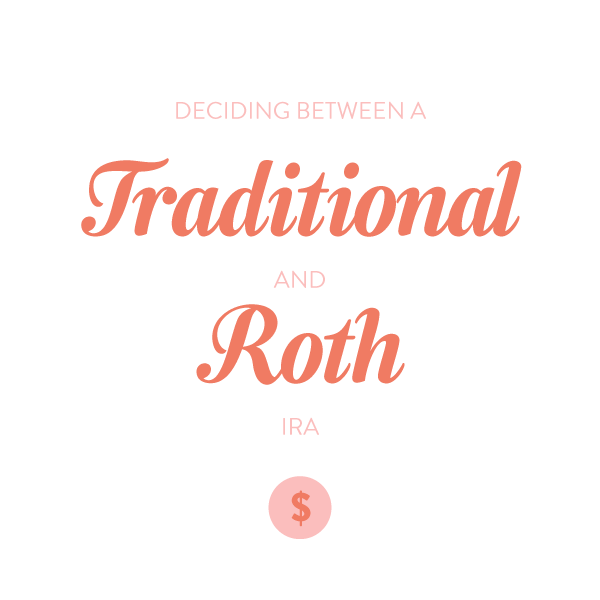
Why save in an IRA instead of another type of account?
Great question! First, if your employer offers a 401k, and especially if they offer a match, max out your match first! (Don’t leave money on the table!) But, don’t stop there :) Since experts estimate that you might need up to 85% of your pre-retirement income in retirement, you might not be able to accumulate enough through just a 401k (there are limits on the amount you can contribute per year).
Also, most IRAs offer a wider range of investment choices (stocks, different funds, etc.) than most 401ks, giving you more flexibility. And of course, the investment options you get with an IRA can earn you much more than a savings account, a CD, or other taxable accounts.
How much should I contribute?
Well hold your horses – first you have to have earned income. (I know that seems obvious, but I do have lots of students reading!) For 2014, the maximum amount you can contribute is $5,500 if you’re under 50 (assuming you’ve made at least $5,500 that year). There is no minimum. $5k sound like a lot? John and I love Megan McArdle, and she recommends saving 15% of your gross income for retirement. On the other hand, note that there are some contribution limits based on income – Fidelity explains them here.
How do I get started?
Yay for you! Many financial institutions offer IRAs – we have used Fidelity and Scottrade in the past, and I would recommend both. Most allow you to sign up and make contributions online. A tip – once you have everything ready to go, set up an automatic monthly draft so you don’t have to think about making a contribution each month!
As usual, this is a great time for me to remind you that I am neither a financial planner nor a tax adviser, and that this is a very basic guide to IRAs. Retirement savings are VITAL but can be complicated, so I highly encourage you to seek assistance along the way. As a bonus, many companies, like Fidelity, offer really amazing guidance over the phone, at no charge!
You know why it’s fun to talk about IRAs right now? If you haven’t yet filed your taxes, you can still make a contribution for 2013!
Do you save for retirement with an IRA? Did you choose Traditional or Roth? I’d love to hear!



















